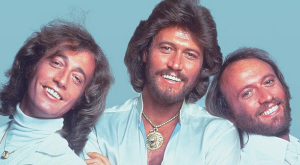 Earlier this year, my wife and I went to a benefit sale at a local church. As things were winding down, one of the volunteers said she had to leave which prompted the pastor to raise his voice and lay a guilt trip on her. Even after she said she had to study for an exam on Monday, he told her that volunteers were supposed to be there for the entire time, and that included clean up.
Earlier this year, my wife and I went to a benefit sale at a local church. As things were winding down, one of the volunteers said she had to leave which prompted the pastor to raise his voice and lay a guilt trip on her. Even after she said she had to study for an exam on Monday, he told her that volunteers were supposed to be there for the entire time, and that included clean up.
5 Ways I Show Gratitude
4 Business Lessons from the Bee Gees
For Christmas in 1979 I received the Bee Gees Greatest Hits, which was the first album I ever owned (thanks Aunt Susie and Uncle Rick!). I spent the rest of my Christmas vacation and much of 1980, sitting on the living room floor crossed legged in front of the stereo with my headphones on. I listened to that album for hours. I’ve always been a fan of the Bee Gees, even when it wasn’t cool to be one.
Doing the Right Thing: Is it Self-Evident?
 Is doing the “right thing” self-evident? Is it something we all know instinctively? And if we do know what the “right thing” to do is, why don’t we do it?
Is doing the “right thing” self-evident? Is it something we all know instinctively? And if we do know what the “right thing” to do is, why don’t we do it?

Follow Me!